Thought Leadership
The Power of Perspective in Relationships
Every relationship you have holds the potential to change you. And when you grow your perspective to understand the experiences, thoughts, and values of others, those relationships hold the power to help change a community.
I’ve had many relationships throughout the years that have guided, challenged, encouraged, and shaped my life. And I’m sure you could list the names of several people who did the same for you. But it was one relationship that significantly impacted the trajectory of my life because it opened my understanding of the world and the people in it.
During high school, I was blessed to meet another young woman my age, an exchange student from Croatia. We got to know each other and became friends. One day I learned that her living situation was falling apart. She faced the blunt reality of being forced to move to another town and start over. Because our friendship had become an important part of my life, I felt compelled to do something. I proposed the idea to my parents that my friend move in with us.
I would like to think it was my persuasive skills that made them say yes. Rather, their openness was rooted in their love for God and for others – core tenants of our Christian faith. They welcomed her with open arms. Before long, I was sharing the master bedroom with my new friend who truly became like a sister to me for the rest of that school year.
“When your perspective is given the space to grow, it has the power to change you.”
We became friends for the same reasons most friendships begin: sharing interests and spending time together. We didn’t enter into a friendship with the intention that we would grow or change from it. But through the ebb and flow of our shared experiences, it naturally became mutually transformative.
Our friendship helped me become more of the person God invited me to be. She grew my perspective – and by doing so, I began to change into someone who values differences and wants to welcome others. My understanding that we are all beautifully made in the image of God, brimming with life and potential, continues to inspire me to this day in the work God has called me to do.
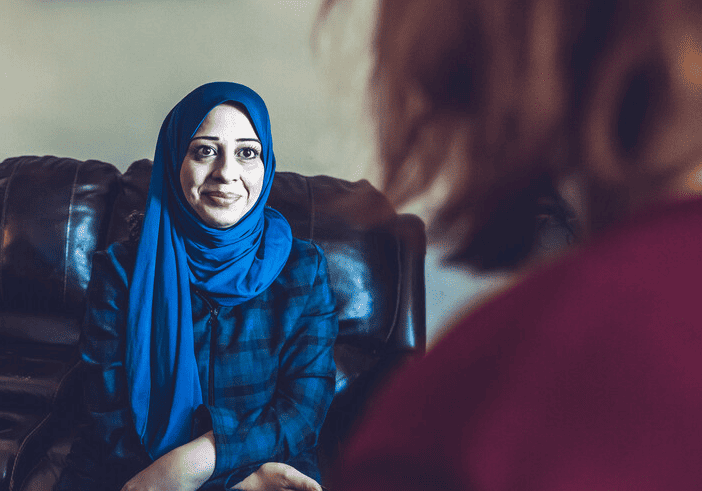
“Your perspective grows in the context of relationship and by your proximity to the stories of others.”
In my role at World Relief, I regularly get to listen to and learn from our refugee and immigrant neighbors. As we celebrate Refugee Awareness Month and World Refugee Day on June 20th, two World Relief staff members who came to the United States as refugees offered to briefly share their experiences. I believe listening to their stories – and other refugees’ stories like them – helps to broaden our perspective on the true impact that occurs when we choose to walk alongside our refugee neighbors as they rebuild their lives.
I celebrate these friends and the thousands of other refugees who have found themselves rebuilding a life in the wake of tragedy.
Every year millions of people are forced to leave their homes for hundreds of reasons and become refugees. Whether they’ve been persecuted because of their faith, their nationality, their gender or sexuality, or experienced extreme poverty or political oppression, they still bear the image of God. In spite of the story playing out in their lives at that particular time, their worth remains. We get to become a part of that story as they rebuild their lives in the U.S., and in so doing, discover how the image of God is alive in us as well.
“Your perspective grows when it becomes intentional.”
As I look back on my high school years, I’m so grateful for my parents’ willingness to listen to my friend’s story. They stepped out in faith and moved closer to her, choosing to do something they hadn’t done before by giving her a place in our home.
Their decision reflected an important truth about growing your perspective to build mutually transformative relationships. It takes intention to move out of your comfort zone into spaces where people are different from you. It’s in these spaces where you grow, learn, and transform. Yes, it can happen by accident, but it almost always requires a deliberate effort.
During this Refugee Awareness Month, let’s be people who are intentional. Let’s be people who celebrate our refugee neighbors. And let’s be people who celebrate and welcome those around us the way that God celebrates and welcomes us.
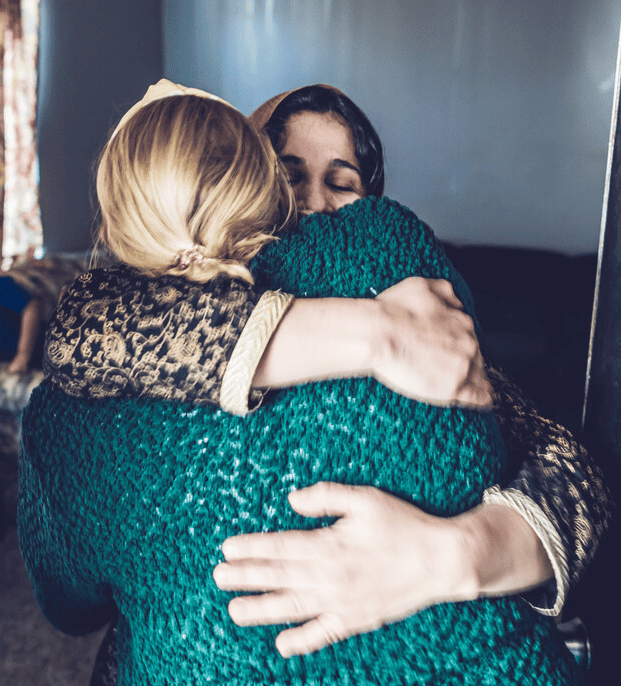
The Part You Play
By the end of September, World Relief Chicagoland expects to resettle over 400 refugees from all over the world and people like you have a part to play every step of the way. Through volunteering, donating needed items, or giving financially you can be a part of something greater, a truly welcoming community. To learn more about how to show welcome and celebrate Refugee Awareness Month, visit World Refugee Day 2023 – World Relief
What does a year hold?
When I consider the new year, I’m struck by how little we know about what it will hold. In 2019, we had no idea that the pandemic would shut down the world in 2020. Before 2020, we had no idea that Afghanistan would fall in 2021. In 2021, we had no idea that Ukraine would be invaded in 2022. As we face 2023, we have no idea what might lie ahead.
Beyond these more public events, it is an unfortunate truth that the world is riddled with conflict, poverty, corruption, and environmental realities that have been driving people from their homes for generations. The People of Myanmar, Venezuela, Darfur, Iran, Eritrea, and other places are forced daily to display a resilience many of us will never know.
So, what do we do with these realities?
What do we do with the certainty we can’t know the future and the heart-breaking crisis of mass displacement? It can be overwhelming and we can find ourselves focusing on what we do not know. In these moments I ask myself, “Who am I becoming?” “How will I lean into trusting God this year?” “How can I be a person of faith in the year ahead?”. Questions more easily asked than answered.
But in my life, I have found that amid uncertain futures, it is vital that we hold to our core values. It is vital that we lean into learning to trust God and others. When tethered to truth, we can navigate the uncertainties ahead with grace, confidence, and hope. When bound to one another, we can endure challenges, create lasting solutions, and make the world a better place.
Values We Hold
All people have sacred worth.
For those of us who follow Jesus, we believe that every person is created in the image of God and worthy of welcome. There are no qualifiers here. As a popular quote from an unknown author says “You will never look in the eyes of a person that God does not love.” This means that every person who comes to the US is someone God loves. Every immigrant, refugee, or asylum seeker has unspeakable value and potential. To not extend welcome is to dishonor the image of God in them.
We are made for connection.
John Donne’s poem “No man (or woman) is an island” captures this reality beautifully. We are not made for isolation. Each of us is a part of something bigger. Each of us has a part to play in this world. We are designed to be together. This means at least two things. First, the work of welcoming immigrants is something we do together, relying on each other’s strengths and resilience. And second, building relationships with those around us, immigrants and native-born alike, is sacred work. When we build relationships with one another that are meaningful and mutually transformative, we are participating in a broader multigenerational journey toward a more just world.
We are more powerful together.
My first encounter with the work of World Relief was as a volunteer. I remember a wide range of emotions when I started. Hopeful, eager, anxious, overwhelmed, grateful . . . the list could go on. But one thing that jumps out to me from that time is how much of an impact the whole community of World Relief was having. Sure, I was giving a few hours a week. But alongside others, we were giving so much more. Over my years serving and leading here, I have seen the power of a community to make lasting change. One example of this is a recent study showing how more evangelical Christians are now looking to scripture for their views on immigration, an area of concerted advocacy work for World Relief. We can create something far more beautiful than we can on our own, together.
We All Have a Part to Play
When we hold space for these values to form us, I believe we will find ourselves ready for the year ahead. In the midst of economic uncertainty and a longer-then-we-would-like pandemic recovery, we remain ready to welcome.
In 2023, I anticipate discovering new challenges and witnessing new successes. I embrace the reality that I can’t know the future. I hold to the truth that no matter what comes, we are not alone. We have hope, and we will continue to serve as we have over the past 43 years. I am grateful beyond words for you and the whole World Relief community. And I know that together, we will continue to embody welcome, provide vital services for immigrants, and create a community we can all be grateful for.
Find Your Part to Play
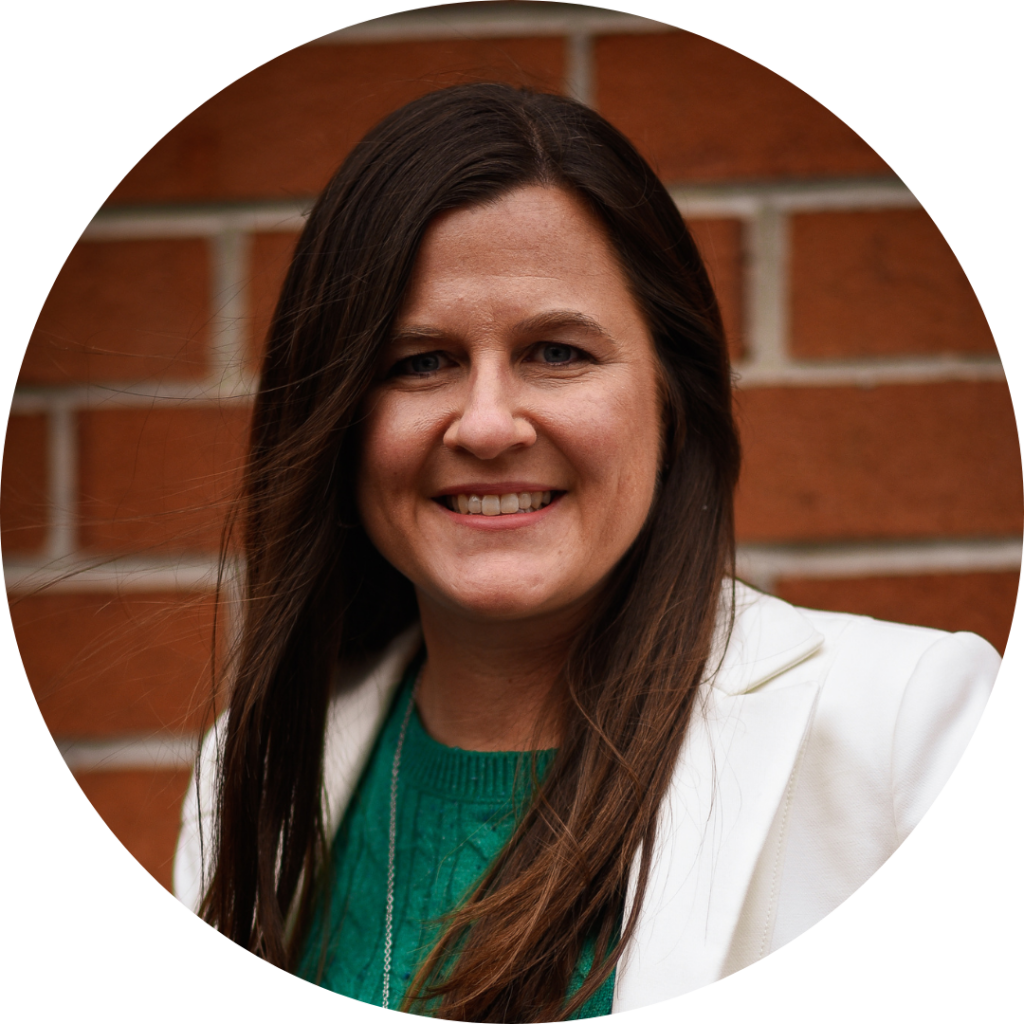
Susan Sperry is the Executive Director of World Relief Chicagoland, a faith-based organization committed to empowering the church and community to serve immigrants in vulnerable situations. She leads World Relief’s three locations in Chicago, DuPage County, and Aurora to provide vital services, bring people together, and build welcoming communities. Susan has served at World Relief since 2001, facilitating the resettlement of thousands of refugees and mobilizing hundreds of volunteers and churches to serve their neighbors. She has her MS in Learning and Organizational Change from Northwestern University, and her undergraduate degree from Wheaton College. She loves working alongside teams to navigate the human side of change and aspires to be a life-long learner.
Everyday Advocacy: Simple Actions That Lead to Justice
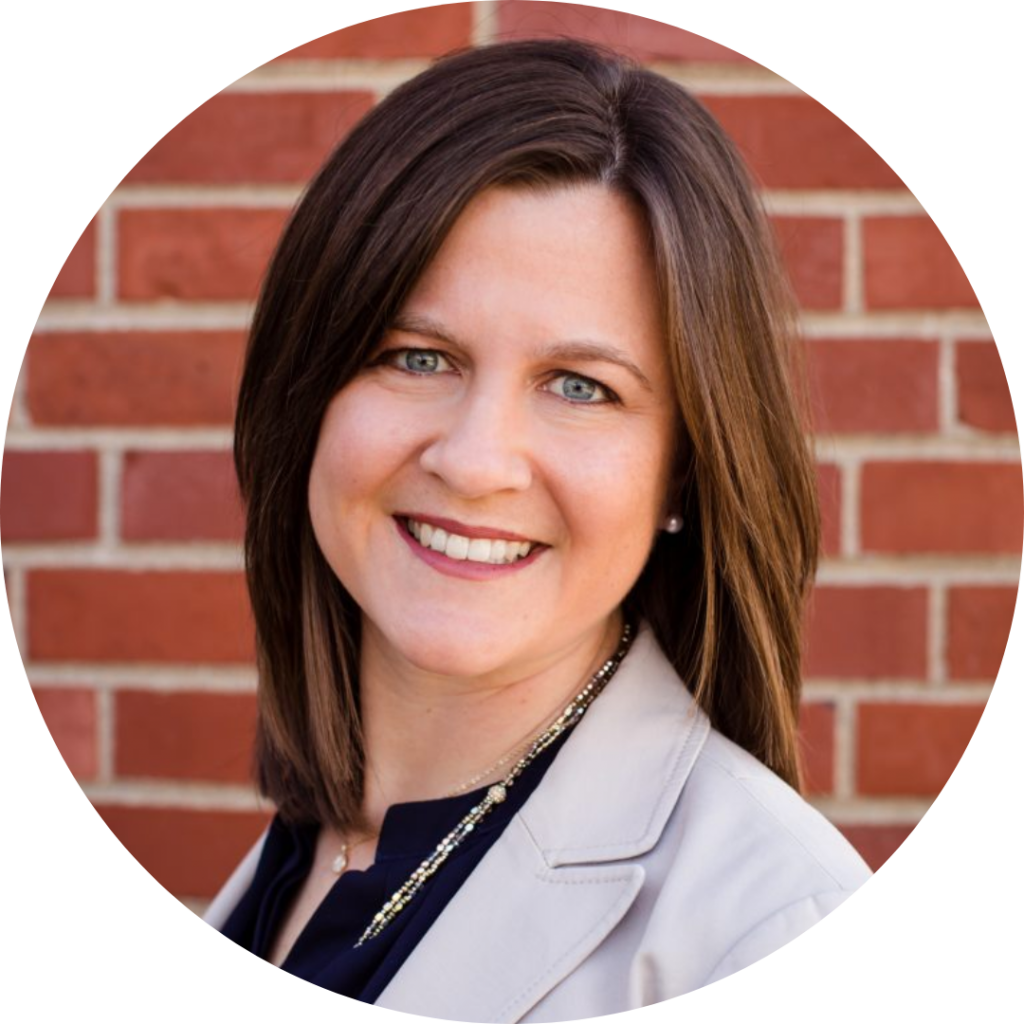
World Relief Chicagoland Executive Director Susan Sperry.
Many define advocacy as acting, speaking, or writing in support of something or someone; often with those in a position to make change – or as we shared in last week’s blog – advocacy is “putting love into action.”
But beyond public advocacy, calling our political representatives, we can practice everyday advocacy: using our voices to intercede on someone else’s behalf.
What is Everyday Advocacy?
Growing up, I never thought of myself as an advocate. In fact, when I thought of “advocacy,” I was intimidated. My earliest calls to elected officials involved a series of starts and stops. I would review my script, think about answers to possible questions, pick up the phone, and pause. I would repeat that cycle before starting to dial. Then I would take a deep breath, pause again, finish dialing, talk as fast as I could, and breathe a sigh of relief after hanging up.
And you know what? It went well, although it was terrifying. But while this type of advocacy is important, it is just one of the many ways we can each use our God-given voice to intercede for immigrants and refugees.
Over time, I’ve learned that advocacy takes many forms. And I have realized that we all advocate, all of the time for the decisions and beliefs that we believe are good.
Yes, advocacy includes speaking to those in authority. But it also looks like helping people navigate complex systems (like healthcare and school), calling the utility company to discuss an unexpected charge on our bill, educating friends and neighbors about immigration systems, and learning about the realities of our country and world through another person’s eyes… and allowing that to shape our actions.
A Biblical Foundation
As I’ve studied the Bible, I’ve learned about many different examples of advocacy. Some people, like Moses and Esther, found themselves in situations where they had the attention of kings. For them, advocacy meant using their positions of influence to speak up and bring freedom and safety for a large group of people. Other biblical figures were more like you and me. We don’t usually have a chance to talk with kings and rulers, but we do get to speak up on matters that impact other people.
The early church was known for standing with the vulnerable and neglected, bringing about healing and freedom, and disrupting systems. A common thread from those stories is the way their actions sprang from belief in God’s love for all people. Early Christians spoke up when they saw situations that did not reflect God’s heart for people to thrive – and this was a pattern throughout church history.
The strongest biblical example of advocacy is found in the person of Jesus, who regularly prayed to God on behalf of his followers and the world. Through Jesus, we see the power of prayers of intercession – of advocacy.
Advocacy Leads to Justice
Advocacy itself is never the goal. Shalom, meaning God-given peace and justice, is the goal. Advocacy is the action, the momentum, that brings about change in hearts and systems and even laws. Hopefully, our advocacy can bring about greater Shalom – justice, freedom, reconciliation, and wholeness. When it does, it reflects God’s ultimate design for relationship between humans and between humans and God.
What Does Everyday Advocacy Look Like?
- Helping a newcomer understand U.S. systems like banks, mail, and schools
- Learning more about local and state laws in an area of your interest, and talking about what you learn with neighbors and friends
- Helping someone access healthcare
- Calling your national, state, or local representatives. Click here to contact your local representatives.
- Talking about the need for more affordable housing with developers, investors, landlords, and anyone in the housing industry
- Telling people in your church or community group about the situations refugees and immigrants face
- Speaking up when you hear and see situations of discrimination or disrespect to others
- Also get creative! There are many ways that your unique abilities can be everyday advocacy.
We All Have Influence
We can choose to use our influence to bring greater justice and wholeness for our neighbors and ourselves. When we do this – whether it’s at work, with our family, at the gym, at church, or volunteering with World Relief – we act justly and serve others in ways that honor God.
Read More of Susan Sperry’s Reflections
Why Christians Should Support the Right to Seek Safety
Building a Community of Safety and Belonging
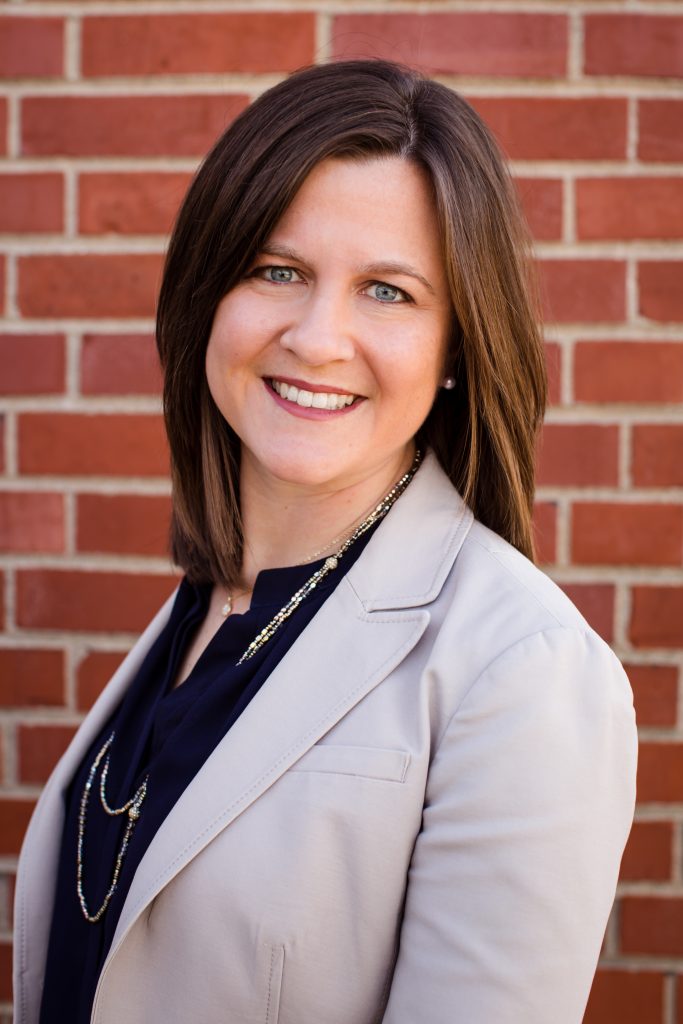
A reflection from World Relief Chicagoland Executive Director Susan Sperry.
June is World Refugee Awareness Month. And on June 20th, we celebrate World Refugee Day. This year, the theme of World Refugee Day is focused on the human right to seek safety.
Whoever they are, people forced to flee should be treated with dignity. Anyone can seek protection, regardless of who they are or what they believe. It is non-negotiable: seeking safety is a human right.
Wherever they come from, people forced to flee should be welcomed. Refugees come from all over the globe. To get out of harm’s way, they might take a plane, a boat, or travel on foot. What remains universal is the right to seek safety.
Whenever people are forced to flee, they have a right to be protected. Whatever the threat – war, violence, persecution – everyone deserves protection. Everyone has a right to be safe.
UNHCR
Who are the people seeking safety?
This is a time of visible conflicts. You might think of Ukraine. There are millions of others who have fled their homes due to less-publicized conflict in places like Ethiopia, Myanmar, or South Sudan. Many of these people become refugees. And during Refugee Awareness Month, it is important that we tell their stories of leaving home to seek refuge.
And yet there are others too – people who arrive in the United States seeking protection from violence because of their identity, religion, or views.
June is National Immigrant Heritage Month, so we also have the time to consider our immigrant neighbors who left beloved homelands, friends, and family…to seek safety and a place to live freely.
This month, I am reflecting on the key reason why both refugees and immigrants must have the right to seek safety: each one is a human being. Those of us who follow Jesus believe in the concept of the “Imago Dei”: that each person is made in the “Image of God.” Let’s explore a few reasons why that makes such an impact on how we treat our immigrant and refugee neighbors.
1. Remembering the Imago Dei Transforms Our Relationships from 2D to 3D
I recently had a conversation with a pastor about what it means to cultivate deep relationships. This pastor framed the conversation as taking a relationship from two dimensions (2D) to three dimensions (3D). By necessity, all of us have “2D” relationships. There are people we know of and we know about, but we don’t know in-depth. We know their outer image, but it’s more of a caricature. We may not think of them as a complex individual with the same level of joy, pain, and experience that we have.
A person becomes “3D” when we spend time together. By talking, laughing, eating, and being human together, we gain insight into their joys, pains, dreams, and fears. When we share life together, we become better able to see the image of God in the person before us and also recognize it within ourselves.
That’s also how we begin to understand each other’s potential. We recognize their capacity to love, create, and build relationships — and that those are qualities we share by virtue of being humans, created in the image of God.
Relationships that move from 2D to 3D begin the process of building community. And in community, where we recognize each other’s humanity, potential, and limitations, we can create safety and space for each other to thrive.
2. Developing Relationships and Belonging Requires Time
In more than 20 years with World Relief, I have seen thousands of people resettled and thousands more immigrants become a part of the World Relief community in Chicagoland. And I have experienced the many ways that being together in community is rewarding and transformative for all involved. In my friendships with immigrants and refugees like Deborah, Jerome, Mohammad, Durmomo, and many others, I have gained an appreciation for the way that the image of God manifests in the creativity, wisdom, and compassion of those around me. Keep an eye out for an upcoming blog series from my friend Durmomo about this!
In each of these friendships, investing time with each other has transformed a 2D image in my head into a 3D understanding in my heart. I am deeply grateful for how these relationships and how we continue to shape each other.
3. Our Value as Humans Gives us the Right to Seek Safety
Christianity, and many other faiths, emphasize the fact that human life is precious. This common thread across cultures is backed up in the theological belief of Christians, that humans created by God and loved by Him, are valuable and important. When someone’s life is threatened, they should have the right to seek safety so that they can experience peace, a relationship with God and others, and the opportunity to use their God-given talents and passions. As Christians, we can protect that opportunity by creating a welcoming space.
I believe that together, we can form a movement to serve the vulnerable people among us. That includes extending safety to refugees and immigrants who have fled war, violence, and persecution and allows us to see the value in every human life. We welcome them. Whoever they are, wherever they come from, and whenever they arrive.
Continue reading:
Ali’s Story: A Refugee Pharmacist Using His Career to Give Back to Others
Finally, I’m Home: Raphael’s Story of 8 Years Waiting for Resettlement
Seeing the Gift in Women
This time last year, right before COVID-19 exploded across the globe, World Relief’s International Programs leadership team came together for a weeklong global gathering in Musanze, Rwanda. As sisters and brothers from 11 different countries came together — Haiti, Cambodia and Kenya to name a few— we broke bread, prayed and celebrated all that God has done through World Relief in our 75 years of service.
While the entire week was filled with rich fellowship and deep strategic conversation, there was one particular day that impacted the three of us greatly. On that day, we focused our learning and discussions around the theme of gender equality. World Relief leadership presented our top strategic goals, one being greater gender equality both within our offices and across our programs.
To our great encouragement, everyone in attendance pledged to reaching this goal by 2022 through the following commitments:
- Commitment of Leadership: Leadership in each country office understands and prioritizes gender equality not only through their own actions, but addresses gaps recognized organizationally and programmatically.
- Gender Balanced Leadership: Increased gender balance in leadership roles at all levels of World Relief staffing. This is manifested by an increased proportion of women in all staff roles with special focus on most senior roles. Women are intentionally developed and included in succession planning and policies reflect concern for equality in career development opportunities and in equal compensation and benefits practices.
- A Gender-Sensitive Organizational Culture: World Relief is recognized internally and externally for its gender-sensitive organizational culture.
- A Gender Programming Focus: A gender lens is incorporated throughout the entire programming cycle within World Relief programming. This is manifested by staff being knowledgeable in the basic elements of gender analysis and possessing relevant technical skills to integrate gender in programming.
- An Accountability Framework: An accountability framework is in place organizationally to track progress on gains made in all of the above areas and to inform future action regarding gaps.
As the day folded into evening, the women of Word Relief led us in worship. There were songs, poetry and a devotional from our, then, new Burundi Country Director, Cesalie Nicimpaye, a long-awaited woman among many men. Women danced and sang in every language. This small moment felt to us like a commissioning as the men prayed over us at the end of the evening saying, “Help us see the gift you have given us in the women of World Relief.”
Since then, despite the hurdles that 2020 presented, we have each spent much of our time advocating for gender equality and working tirelessly to see a biblical vision of equal leadership among men and women become the norm across World Relief and beyond.
Today, as we prepare to celebrate International Women’s Day, we celebrate just a few of the outcomes and small beginnings that this commitment has spurred on:
- Every World Relief international office now has a dedicated gender focal point
- Effective June 2020, World Relief rolled out a long-awaited paid maternity and parental leave policy.
- Every World Relief international office has concluded a gender scorecard based upon the work of the Wheaton Network Initiative on Gender, Development and Christianity .
- All World Relief offices are in the process of creating a gender plan, which includes improvements in gender sensitive programming and data collection, recruitment processes and leadership pipelines that target women and better facilities for our female staff.
- All international offices are currently participating in a six-week intensive Development Associates International course, Women and Men Leading Together.
As 2021 brings with it new opportunities for growth in this work, we will continue to challenge for change, creating a better world for women and girls for generations to come. Will you join us?
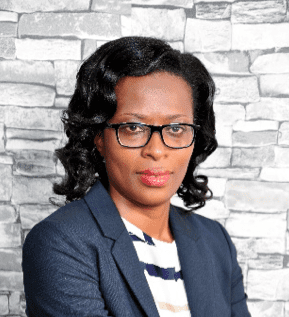
Clemence Nkulikiyinka has served with World Relief since 2008. Currently she serves as a Technical Advisor for Integral Mission, and one of global gender focal point. She has served in different roles, especially in Rwanda.

As the Director of the Program Resource Team, Joanna Kretzer Chun leads a team of global technical advisors that support World Relief international programs spanning Health and Nutrition, Savings, Agriculture, Child Development and Protection, and Couples’ Strengthening. With over fifteen years of international development experience, Joanna’s programming background spans the areas of gender mainstreaming, women’s empowerment, child protection, child development, faith leader engagement, and social norm change. Joanna holds Master degrees in Intercultural Studies and Family Studies from Fuller Seminary and a BA in Foreign Affairs from the University of Virginia. She resides with her family in Washington, DC.
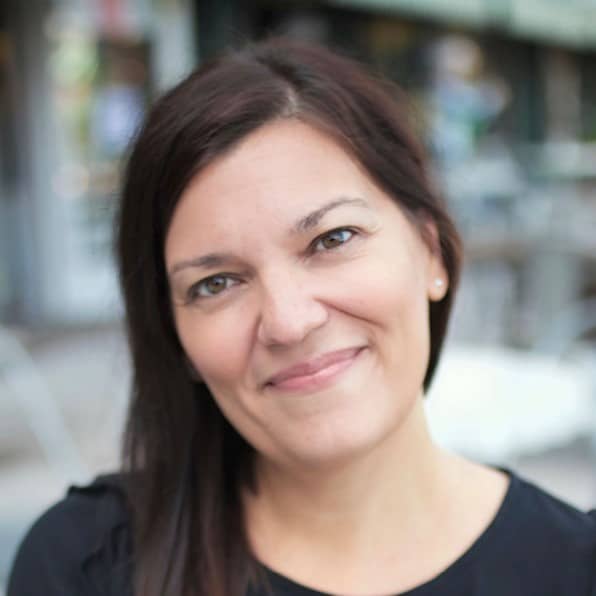
Eeva Sallinen Simard is Chief of Party for World Relief’s USAID funded SCOPE (Strengthening Community Outcomes through Positive Engagement) Project in RMNCH, HIV and COVID-19 response serving in Malawi, Kenya, Haiti, South Sudan, Rwanda, and DRC. She holds a master’s degree in International Politics from the University of Helsinki, and an MBA from Johns Hopkins University Carey Business School. She lives in Baltimore, MD with her husband, son, and daughter.
Clemence, Eeva and Joanna are gender focal points for World Relief’s division of international programs.






